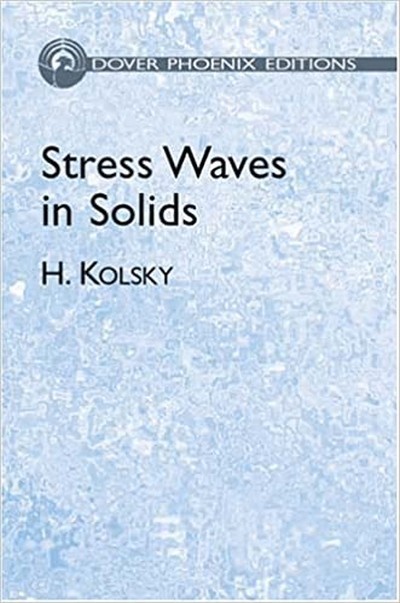STRESS WAVES IN SOLIDS
ISBN: 9780486495347
Συγγραφέας: H. KOLSKY
Κωδικός: 9780486495347
Άμεση παραλαβή / Παράδοση σε 1-3
Τιμή
45,00€ 25,00€
The theory of the propagation of waves in solids was developed during the 19th century but, in the first quarter of this century, it fell into neglect. Only recently, as the result of new techniques of study and the development of new plastics and other such materials, has it again become the object of intensive investigation. This book is the most readable survey of the theoretical core of current knowledge of the subject and, unlike most other studies in the field, it is fully correlated with experimental material. The author, who has taught applied physics on the college level for many years, gives a concise account of the classical theory necessary to an understanding of the subject, considers how this theory has been extended to solids which are not perfectly elastic, and then summarizes the important experimental work of recent years. The first part, Elastic Waves, covers propagation in both an extended and a bounded plastic medium and experimental investigations with elastic materials. Included in this material are discussions of the components of stress and strain; Hooke's law; Rayleigh waves; reflection and refraction of elastic waves; vibrations of rods; the Pochhammer equation; propagation of an elastic pulse along cylindrical, conical, and non-circular bars; ultrasonic measurements; and other sub-topics. Part II, Stress Waves in Imperfectly Elastic Media, covers internal friction (definitions, measurements, mechanism, etc.), experimental investigation of dynamic elastic properties (resonance and wave propagation methods, dynamic stress-strain measurements, etc.), plastic waves and shock waves (Lagrangian and Eulerian methods, experiments, shock waves in solids, etc.), and fractures produced by stress waves (in conical and irregular specimens, induced by explosives and by stress pulses, brittle and ductile fractures, etc.).
| Χαρακτηριστικά Προϊόντος | |
|---|---|
| ISBN | 9780486495347 |
| Συγγραφέας | H. KOLSKY |
| Εκδότης | DOVER |
| Επίπεδο | ΠΑΝΕΠΙΣΤΗΜΙΟ |
| Εξώφυλλο | ΣΚΛΗΡΟ |
| Αρ. Έκδοσης | 1η |
| Έτος Έκδοσης | 1963 |
| Σελίδες | 212 |
| Χώρα προέλευσης | Η.Π.Α |
Αυτή η σελίδα προστατεύεται από το σύστημα reCAPTCHA της Google. Μάθετε περισσότερα.













